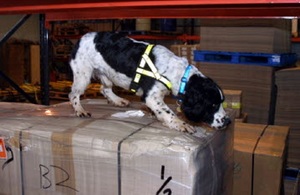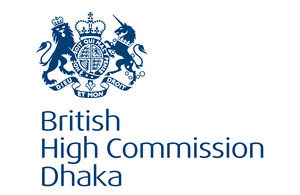Guide to GCSE results for England, summer 2022
Students sitting GCSE exams and formal assessments this summer have shown incredible resilience, and today we celebrate their success. To recognise the disruption that they have experienced, due to the coronavirus (COVID-19) pandemic, Ofqual made arrangements with the Department for Education and exam boards to put in place an unprecedented package of support for students.
This support included some changes to coursework to reflect public health restrictions in place at the time students were doing their assessments, a choice of content in some subjects, and formulae and equation sheets were provided in maths and science. Exam boards also published advance information in February which gave information about some of the topics that would be in the exams. This was intended to help students to focus their revision and make the exams feel less daunting.
For all subjects, there has been lenient grading, reflecting a staging post between 2021 and 2019 grades.
Dr Jo Saxton, Chief Regulator, said:
Students collecting GCSE results today can be so proud of their achievements – a testament to their hard work and resilience over the past 2 years. I know, from visiting schools and colleges across England since September, that students and teachers welcome the return of exams and formal assessments. Students told me that they wanted the chance to prove themselves in this tried and tested way.
As with A level results, today’s GCSE results are higher overall than those of 2019, and – as we have always said – lower than in 2021, when there was a different method of assessment. It makes sense to compare this year’s results with those of 2019 when exams were last sat. I felt strongly that it would not have been right to go straight back to pre-pandemic grading in one go but accept that we do need to continue to take steps back to normality. These results overall, coming as they do broadly midway between 2021 and 2019, represent a staging post on that journey.
Key points
-
This is the first summer exam series since 2019. Today’s results should not be compared to 2020 or 2021, because of the different methods of assessment.
-
Overall GCSE results are higher than in 2019. Outcomes at grade 7 and above are 26.0% compared with 20.6% in 2019, and outcomes at grade 4 and above are 73.0% compared with 67.0% in 2019.
-
The results for GCSE French and German reflect the adjustments we required exam boards to make, following our announcement that we would aim to better align grade standards with Spanish
Today (25 August 2022) we are publishing:
As in a typical year, the Joint Council for Qualifications (JCQ) has published results in England for GCSE, overall and by subject. These results are also shown in our interactive visualisation.
Centre type results
Ofqual has updated its interactive visualisation to show GCSE results for different types of school and college compared to previous years, overall and by subject. The centre type categories are based on the national centre number (NCN) register and are self-reported by centres.
Overall results for all types of schools and colleges are higher than in 2019 at grade 7 and above. The extent to which outcomes have changed relative to 2019 is likely, in part, to reflect longstanding differences in the pattern of results for different centre types. This summer results will also reflect any differential impact of the pandemic.
Cumulative percentage outcomes by centre type – grade 7 and above
| Centre type | 2019 | 2021 | 2022 |
| Academies | 20.7 | 28.0 | 25.6 |
| Free schools | 20.6 | 29.2 | 25.5 |
| FE establishment | 1.0 | 2.2 | 1.5 |
| Independent | 47.0 | 61.2 | 53.0 |
| Other | 7.2 | 12.7 | 10.3 |
| Secondary comprehensive | 18.5 | 26.0 | 23.3 |
| Secondary modern | 13.6 | 20.0 | 16.7 |
| Secondary selective | 58.1 | 68.5 | 66.2 |
| Sixth form college | 1.4 | 3.3 | 2.4 |
| Tertiary college | 1.9 | 3.5 | 2.9 |
At grade 4 and above results for different types of school and college vary relative to 2019. This is likely to reflect the changing cohort in some types of centre. For example, there is a much smaller post-16 cohort this summer, and these learners typically make up the majority of the entries in further education establishments and colleges.
Cumulative percentage outcomes by centre type – grade 4 and above
| Centre type | 2019 | 2021 | 2022 |
| Academies | 69.2 | 78.2 | 74.5 |
| Free schools | 69.2 | 78.7 | 73.9 |
| FE establishment | 24.0 | 37.9 | 23.4 |
| Independent | 90.1 | 95.5 | 92.5 |
| Other | 37.3 | 54.2 | 43.2 |
| Secondary comprehensive | 67.6 | 77.3 | 73.3 |
| Secondary modern | 61.7 | 71.6 | 67.5 |
| Secondary selective | 96.9 | 98.8 | 97.9 |
| Sixth form college | 31.2 | 47.6 | 27.4 |
| Tertiary college | 27.0 | 42.1 | 25.4 |
Centre variability
Ofqual’s interactive visualisation shows the level of variation in schools’ and colleges’ GCSE results compared to 2019. We know that, in any year, individual schools and colleges may see variation in the proportion of students achieving particular grades compared to previous years. This can be due to many different factors, including differences in the mix of students entered for particular qualifications, different teaching approaches, changes in teaching staff or teaching time, and changes to qualifications. This year, the approach to grading is also more lenient than pre-pandemic.
In general, there is slightly more variation in centres’ results. This is not surprising, given that comparisons are being made over a longer time period (3 years). Our interactive visualisation allows users to explore variation in centres’ results for different age groups and sizes of centres.
Equalities analyses
Now that results have been issued, Ofqual will be repeating the equalities analyses we published in 2020 and 2021. It was not possible for us to complete this analysis ahead of results being issued, because final data from exams is only available very close to results days. We will publish this as soon as we can, in the autumn.
In 2020 and 2021, this analysis considered whether the gaps between the results for different groups of students, which are observed in years when exams go ahead, had changed. This summer the same assessment arrangements have applied to all students. Any changes in the differences in outcomes for students with different protected characteristics are likely due to other factors, such as the impact of the pandemic.
Grade boundaries
Exam boards have set grade boundaries this summer based on a combination of qualitative and quantitative evidence. As in previous years when exams took place, there has been an important role for examiner judgement in reviewing the quality of students’ work.
In general, grade boundaries are lower this summer than in 2019. This is not surprising given the lenient approach to grading. Not all grade boundaries are lower than 2019 though, since the position of the boundaries also reflects the difficulty of the assessment. The assessment arrangements in a number of GCSE subjects were also different this summer – for example, there was a choice of content in some subjects. For these specifications, direct comparisons between grade boundaries this summer and in 2019 cannot be made.
GCSE French and German
In 2019 we announced that we would seek to align grade standards in GCSE French and German with Spanish, following the conclusion of our inter-subject comparability work. This summer we required exam boards to make an upward adjustment in both French and German at grades 9, 7 and 4. This was taken into account during awarding and is reflected in the outcomes. We will review this and consider whether any further adjustments are required in future series.

